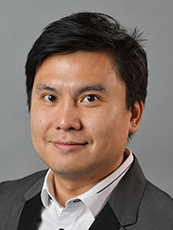Speakers

Dr. Paul LEE
Hong Kong
Dr Paul Lee graduated in 2006 from the University of Hong Kong (HKU) and became an endocrinologist in 2013. In 2015, Dr Lee joined the Department of Medicine, HKU, as a Clinical Assistant Professor. He obtained the Croucher Foundation Fellowship in 2017 to pursue his overseas training at the Garvan Institute of Medical Research in Sydney. In 2022, he received his Doctor of Medicine degree from HKU and was awarded the Sir Patrick Manson Gold Medal.
Dr Lee’s research focuses on type 2 diabetes (T2D) and its complications, particularly in the contribution of adipokines and novel biomarkers that enhance risk stratification in the clinical management of diabetes and its complications. Dr Lee also has special interests in studying metabolic dysfunction-steatotic liver disease (MASLD) in T2D and initiated the Hong Kong West Diabetes NAFLD Cohort to investigate the risk factors of liver fibrosis progression in T2D. His research has resulted in authorship in over 110 peer-reviewed publications. He is an editorial board member of JCEM and Diabetes & Metabolism Journal. His research received the Investigator Award by the Asian Association for the Study of Diabetes in 2021, the Faculty Outstanding Research Output Award by HKU, the Young Investigator Outstanding Research Paper Award in 2022 and the Richard Yu Lectureship by the Hong Kong College of Physicians (HKCP) in 2023.
Dr Lee is currently the Honorary Secretary of the Hong Kong Society of Endocrinology, Metabolism and Reproduction and the Specialty Board in Endocrinology, Diabetes and Metabolism (Hong Kong Region) of HKCP. He is also a member of the expert panel advising the Reference Framework for Diabetes Care and Hypertension Care under the Food and Health Bureau of the HKSAR.
Studies have shown that around 1 in 4 patients undergoing surgery have a chronic disease and 8% are having diabetes. On the other hand, up to 50% of patients with diabetes will undergo at least one surgery during their lifetime. The presence of diabetes in surgical patients increases both morbidity and mortality, and peri-operative mortality rates have been reported up to 50% greater than those without diabetes. Potential factors leading to these adverse outcomes include multiple co-morbidities due to chronic diabetic complications, the complex polypharmacy, increased peri- and post-operative infections, as well as fluctuating glycaemia due to fasting and operative stress. This short talk will provide an update on the peri-operative management in diabetes, highlighting the precautions with the use of several newer classes of anti-diabetic agents.